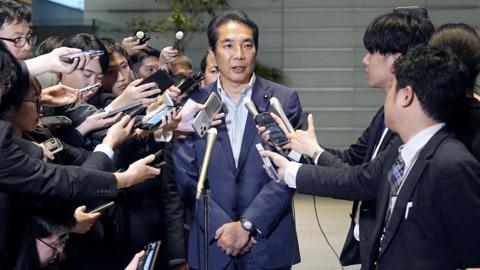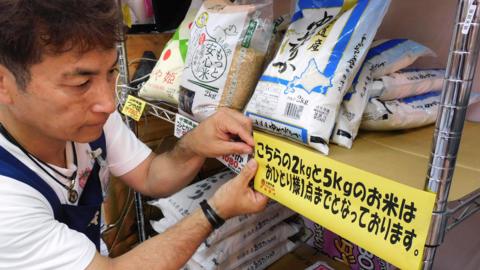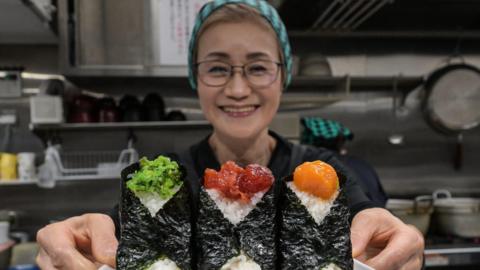It's a simple issue of supply and demand, agricultural economist Kunio Nishikawa of Ibaraki University says.
But he believes it was caused by a government miscalculation.
Until 1995, the government controlled the amount of rice farmers produced by working closely with agricultural cooperatives. The law was abolished that year but the agriculture ministry continues to publish demand estimates so farmers can avoid producing a glut of rice.
But, Prof Nishikawa says, they got it wrong in 2023 and 2024. They estimated the demand to be 6.8m tonnes, while the actual demand, he adds, was 7.05m tonnes.
Demand for rice went up because of more tourists visiting Japan and a rise in people eating out after the pandemic.



